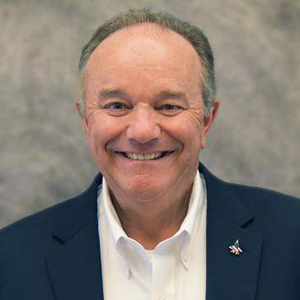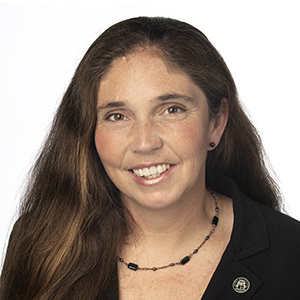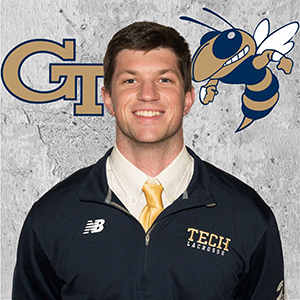
Many recall the places they stood and the emotions they experienced when hijacked planes struck New York City’s World Trade Center, the Pentagon, and a field in Shanksville, Pennsylvania — and yet the memories of September 11, 2001, represent an ever-changing legacy.
On a college campus like Georgia Tech, with each passing year, it becomes increasingly evident how 9/11 memories are shifting from recent remembrances to the chronicles of history. Each new entering class represents a growing generation with no personal recollection of those harrowing events 20 years ago.
The accounts and stories we now share play a crucial role in helping us all to commit to the promise of remembrance. The hope of this collection of stories — told from the perspectives of Georgia Tech voices who experienced that day firsthand — is not just to remember those lost but also to honor the bravery, resilience, and strength of those who endured that day that changed our world forever.
(A full version of this story can be read on the Georgia Tech news page)
Inside the Pentagon During the Attack
 |
| Gen. Philip Breedlove |
Before General Philip Breedlove began teaching courses on global issues and leadership at Tech, he was a Georgia Tech civil engineering student and ROTC cadet on campus. Not long after earning his degree, he was training to become an Air Force fighter pilot. That charted a path through the military that led him to the Pentagon, serving as the top assistant to the secretary of the Air Force.
“Thank you for allowing me to tell the story,” Breedlove said. “It’s important to me as a Yellow Jacket to share what I and other Yellow Jackets felt on that day. And it’s important to me as a former senior military officer that generations that weren’t really cognizant of the times understand what happened on that day.”
In his role, Breedlove was chief aide to the top official in the Air Force, Jim Roche. He recalls that, on the morning of September 11, 2001, his boss was meeting with members of Congress for a breakfast discussion.
“The crazy thing is that the subject was terrorism,” he said.
Breedlove was in his office, getting a head start on some work when, suddenly, members of his staff rushed in urging him to turn on the television in his office, saying there had been an accident in New York City.
“We turn on the TV, and I’m watching a replay of the first airplane hitting the building,” Breedlove said. He wrote a quick note and stepped into the breakfast meeting to slip it to Roche, promising to keep him updated. He returned to his office just in time to see the second plane strike the south tower.
“My staff and I agreed this was not an accident,” Breedlove remembered.
He then returned to the breakfast meeting to advise that they adjourn because America appeared to be under attack.
Pressing the Button
Breedlove and Roach started figuring out their crisis plan while they watched the live television coverage of what was unfolding.
“Then the whole Pentagon shook, and if you know the history of the building, it was built during World War II and there was no rebar in it,” Breedlove said.
Breedlove thinks that softness may have prevented an even worse catastrophe. Only seconds later, he recalled, an acrid smoke started entering the room. That prompted a once-in-a-lifetime decision.
“There was a button under my desk that was built for the Cold War, the nuclear war scare days,” he said. He instinctively pressed the button, and immediately special forces units rushed into the room to whisk the secretary toward a security bunker at the center of the Pentagon.
Breedlove says those inside thought a bomb had detonated.
As he and other top officials were being escorted toward the bunker, the group was fighting against a torrent of people trying to flee the building. As they approached the bunker, Breedlove heard someone cry out, “We have wounded! We have wounded!”
He said that he was “so proud of my uniformed brothers and sisters because almost everyone in uniform turned back to head toward the problem.”
Once in the bunker, one of the challenges was trying to plan for national defense with communication systems down. They used Blackberry mobile devices to find out that planes were being grounded across the country.
“It became apparent to us that an airplane had turned toward Washington, D.C. that was still airborne and was not answering,” Breedlove said.
He said that the decision was made to try and scramble fighter jets to intercept the plane, potentially taking it down to prevent it from flying into another location in the nation’s capital. Military officials now know they would have never been able to successfully stop that aircraft.
“We never had to face that decision because of the brave souls on that plane who overpowered their hijackers,” said Breedlove.
A Singular Purpose
Breedlove and his colleagues worked through the night. He recalled that it was 16 or 17 hours before they could communicate to their families that they were alive, but Breedlove said he saw triumph in the face of this immense tragedy.
“This was a time-altering piece of our history,” he said. “I have never seen America so united. I have never seen us with such singular purpose.”
And that’s why he wanted to share his memory.
“It’s important to bring this memory a little bit more to life for those who didn’t live it.”
A Student on 9/11
Most days you can find Kelly Griendling on campus preparing the next generation of engineers. She serves as a lecturer in Georgia Tech’s Daniel Guggenheim School of Aerospace Engineering.
But 20 years ago, Griendling was on campus for a different reason.
 |
| Kelly Griendling |
“I had an 8 a.m. class. It was Psych 1000, which is the new GT 1000 now,” she said. She was only a few days into her first year as an aerospace engineering student at Tech when terror struck America.
“I was in class when the first plane hit the World Trade Center,” she said.
Her roommate informed her what had happened when she returned from class. “I remember thinking, ‘Oh, that’s a terrible aviation accident.’” She continued to have breakfast and returned only to find out another plane had hit the Trade Center’s south tower.
According to Griendling, that’s when the uncertainty started to build.
“It was not too long after that one hit the Pentagon. We didn’t have a TV in our dorm room. There was one in the common room down the hall,” she recalled.
Griendling says her entire floor was gathered around the television, waiting for any new details about what was actually happening. “Not too long after the second plane hit, Tech canceled classes for the day. At the time, I think we were all a little confused as to why this thing that was happening in New York made them cancel classes in Atlanta."
Worry and Fear
She tried contacting a friend in New York.
“We couldn’t get in touch with anyone,” she said. “The phone lines were all down. There was no Facebook safe spot check-in to make sure everybody was OK; that didn’t exist.” Details remained murky and that left many paralyzed with anxiety. “Just a lot of uncertainty, not knowing if we should all just go home,” Griendling said.
It was days before she and her classmates really got a handle on what had happened — and the magnitude. The realization that these attacks had been perpetrated by hijackers moved the general unease to worry and fear.
“Oh my gosh, we’re going to have a war now and what does that even mean to have a war against a terrorist organization instead of a nation?” she remembered asking. Conversations about the draft ensued. Griendling said ROTC students were directly affected.
Months after the attacks, Griendling also started seeing changes in her field.
The Lasting Effect
“The immediate impact was on security, of course,” she said. “The protocols have changed continuously since then, but they’ve never gone back to where they were pre-9/11.”
Stepped-up passenger screenings have become a mainstay for air travel now. “There’s a lot more behind the scenes that maybe people aren’t as aware of to keep flights secure: changes to air traffic control, changes to how flights are managed behind the scenes by the FAA.” Griendling also noted that 9/11 has had a profound impact on aircraft design, with an increased emphasis on security.
For those who don’t have a memory of 9/11, Griendling associates that day with other notable events from history like Pearl Harbor and the Challenger disaster.
“Every time you learn history, you learn about these turning points. I think 9/11 will have the same impact because it had such a dramatic shift on the way we lived, the way we handled foreign policy, the way we handled defense,” Griendling says.
Sharing those vivid memories for Griendling is a way for those, like her, who experienced 9/11 to hold true to the promise not to forget what happened that day.
“You’re certainly not going to find anyone who’s unaware of what happened that day and the consequences that it had.”
[VIDEO::https://www.youtube.com/watch?v=wGlRUhlvmi4]
A Family Legacy for Current Student
 |
| Kevin Lewis |
Kevin Lewis was only 1 when the 9/11 attacks happened just a few miles from his hometown on New York’s Long Island. His father, Andrew, was an officer working the overnight shift with the New York Police Department.
“He got off around 8 a.m. and had just been getting home,” said Lewis, a student in the School of Civil and Environmental Engineering.
When word came that the World Trade Center was under attack, Lewis said his father got right back in his car and drove back into the city. He worked on recovery efforts at ground zero in Lower Manhattan for months after the tragedy unfolded.
“I remember my mom telling me that he was there day and night trying to recover people, then helping sort through the rubble, just doing everything he could to help the city recover,” recalled Lewis.
Lewis is part of a generation with limited personal memories of 9/11, but long-lasting effects from it.
“Everyone I grew up with was affected in one way or another, whether it was friends or family. Multiple friends I grew up with lost parents or family members on that day,” he explained.
The Legacy Lives On
But Lewis says he feels lucky he had 16 years of meeting his father’s squad mates, hearing stories, and learning about his father’s brave actions. In 2017, Andrew Lewis died from 9/11-related brain cancer attributed to breathing in the toxic chemicals in the air at the site of the destruction. His son, who was in his junior year of high school at the time of his death, decided to pay tribute to his late father in his college application essay.
“I didn’t want him to be forgotten. I wanted people to know about him and what he did,” Lewis said. “Everyone remembers the people who lost their lives that day, but there are so many people who lost their lives in the aftermath of it who don’t always get that same recognition and remembrance.”
Lewis says he wouldn’t be at Georgia Tech without his father’s example, and now he’s using his education to continue the example his father set for him. He is studying civil engineering and, this summer, took part in an internship program where he helped build a hospital.
“My dad instilled in me a sense of public service,” he said. “I want to make the world a better place for everyone else around me just like my father did. I wake up every day determined to be the son, brother, and citizen he was shaping me to be.”